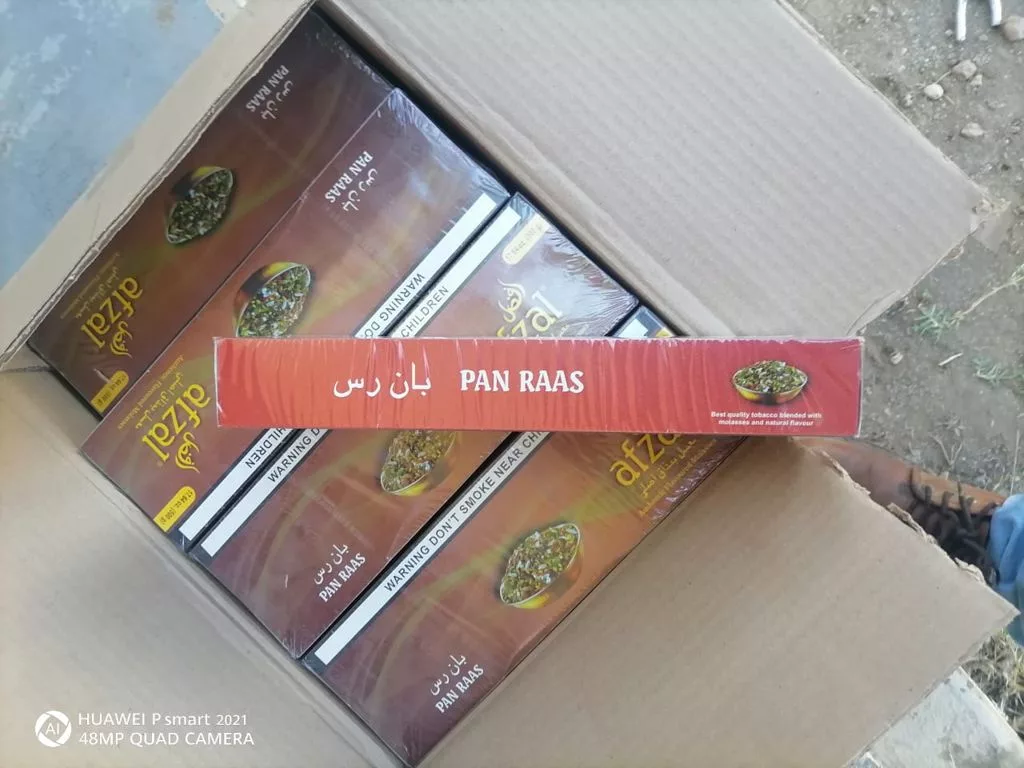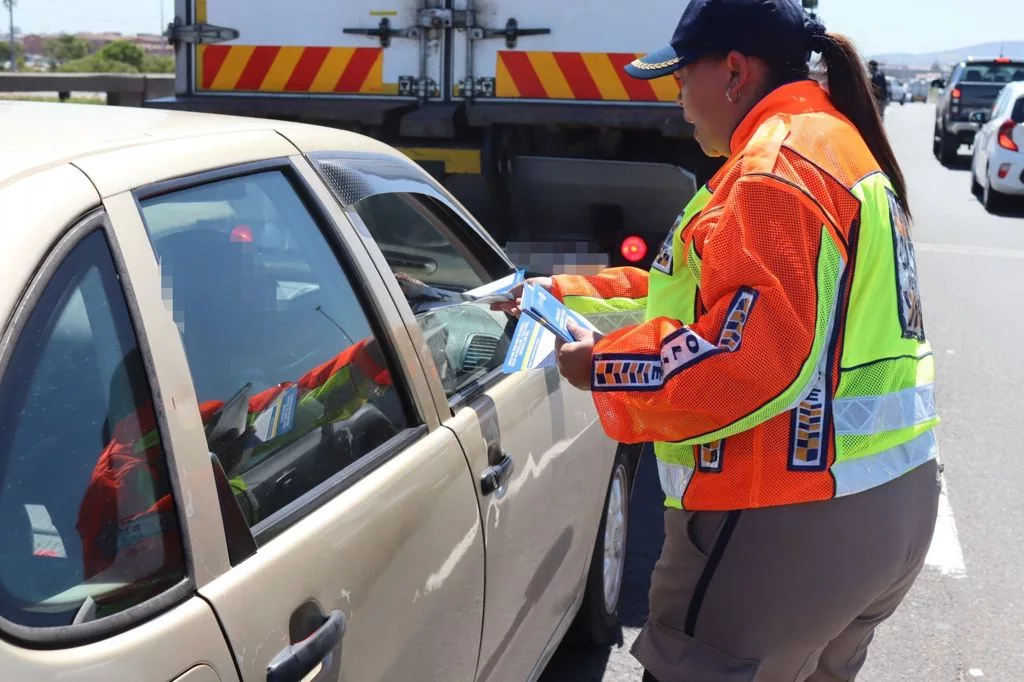South African police seized illicit cigarettes and tobacco products worth R10 million ($673,000) in a collaborative operation between multiple units. The seizure sheds light on the scale of South Africa’s illegal tobacco trade, which threatens the legal industry, results in substantial government revenue losses, and poses severe health risks to consumers. The illicit trade has a significant impact on the South African economy, and efforts by law enforcement agencies are necessary to combat its detrimental effects.
What was the recent major seizure of illegal tobacco products in South Africa?
South African Police Service (SAPS) combined efforts in a seizure of illicit cigarettes and tobacco products, resulting in the confiscation of goods estimated at a street value of R10 million ($673,000). The operation was a collaborative effort between multiple units and demonstrates the unwavering commitment of law enforcement agencies to protect society from criminal activities. The seized products shed light on the reach and scale of South Africa’s illegal tobacco trade, which threatens the legal industry, results in substantial government revenue losses, and poses severe health risks to consumers.
A Collaborative Seizure Worth Millions
South African Police Service (SAPS) specialized units recently combined their efforts in a well-executed operation, resulting in a major seizure of illicit cigarettes and tobacco products. The confiscated goods, with an estimated street value of R10 million ($673,000), demonstrate the unwavering commitment of law enforcement agencies to protect society from criminal activities.
Lieutenant General Koliswa Otola, the Northern Cape Provincial Commissioner, praised the rapid response and cooperation of multiple units involved in the operation. The Northern Cape Organised Crime Investigation Unit, the National Crime Intelligence Unit, and the Kimberley K9 Unit displayed exceptional teamwork in achieving such a significant milestone in the fight against the illicit tobacco trade.
The operation commenced when the law enforcement units received reliable information about the storage of illegal goods at a facility in Memorial Road, Kimberley. The officers promptly arrived at the storage container facility and initiated their search. Their thorough inspection led to the discovery of three storage containers, holding an astonishing 764 boxes of illicit cigarettes and 53 boxes of hookah flavor.
The Extent of South Africa’s Illegal Tobacco Trade
To support the search and seizure operation, additional members from the Directorate for Priority Crime Investigations, Kimberley Crime Prevention Unit, and Crime Intelligence arrived to secure the scene and safeguard the exhibits. The Bloemfontein Customs team is scheduled to arrive in Kimberley on 20 October 2023 to authenticate the seized goods.
This incident sheds light on the reach and scale of South Africa’s illegal tobacco trade, which involves millions of rands worth of illicit products stored in seemingly harmless locations. The seizure serves as a reminder of the crucial role the public plays in providing law enforcement with valuable information, ultimately leading to the successful dismantling of criminal networks.
The illicit tobacco trade has a significant impact on the South African economy. It threatens the legal industry, results in substantial government revenue losses, and poses severe health risks to consumers. The World Health Organization (WHO) identifies the illegal tobacco trade as a major global concern, with South Africa being no exception.
Combating the Illicit Tobacco Trade’s Detrimental Effects
Several factors have contributed to the growth of the illicit tobacco trade in South Africa over the years, including increased taxation on legal products, widespread corruption, and a struggling economy. Additionally, the demand for cheaper alternatives and the promise of high profit margins for those involved in the trade, including individuals and organized criminal syndicates, fuel the illegal market.
The illicit tobacco trade has numerous adverse effects, such as depriving the government of tax revenue that could fund essential public services like healthcare, education, and infrastructure development. The illegal market also poses a significant public health threat, as unregulated products often contain harmful substances and lack necessary health warnings on packaging.
Efforts by law enforcement agencies, like the recent seizure in Kimberley, are crucial in curbing the spread of the illicit tobacco trade. However, tackling this growing problem requires a multi-faceted approach involving ongoing collaboration among various stakeholders, including governments, the private sector, and civil society.
In summary, the recent multi-million rand seizure of illegal cigarettes and tobacco products in South Africa highlights the effectiveness of SAPS’s specialized units. When combined with public vigilance and cooperation among stakeholders, proactive measures taken by law enforcement agencies can make significant progress in dismantling the illicit tobacco trade. Ultimately, this will allow the South African economy to recover, benefiting both the legal tobacco industry and the nation as a whole.
What is the impact of South Africa’s illegal tobacco trade on the economy?
The illegal tobacco trade threatens the legal industry, results in substantial government revenue losses, and poses severe health risks to consumers. It has a significant impact on the South African economy, depriving the government of tax revenue that could fund essential public services like healthcare, education, and infrastructure development.
What are the adverse effects of the illicit tobacco trade in South Africa?
The illegal market poses a significant public health threat, as unregulated products often contain harmful substances and lack necessary health warnings on packaging. It also deprives the government of tax revenue that could fund essential public services and infrastructure development.
What factors have contributed to the growth of the illicit tobacco trade in South Africa?
Increased taxation on legal products, widespread corruption, a struggling economy, and the demand for cheaper alternatives have contributed to the growth of the illicit tobacco trade in South Africa. The promise of high profit margins for those involved in the trade, including individuals and organized criminal syndicates, also fuels the illegal market.
What is the World Health Organization’s stance on the illegal tobacco trade?
The World Health Organization (WHO) identifies the illegal tobacco trade as a major global concern, with South Africa being no exception.
What is the role of law enforcement agencies in combating the illicit tobacco trade?
Efforts by law enforcement agencies, like the recent seizure in Kimberley, are crucial in curbing the spread of the illicit tobacco trade. However, tackling this growing problem requires a multi-faceted approach involving ongoing collaboration among various stakeholders, including governments, the private sector, and civil society.
What is the value of the recent seizure of illegal cigarettes and tobacco products in South Africa?
The recent seizure of illicit cigarettes and tobacco products in South Africa had an estimated street value of R10 million ($673,000).
What was the basis of the recent multi-million rand seizure of illegal cigarettes and tobacco products in South Africa?
The law enforcement units received reliable information about the storage of illegal goods at a facility in Memorial Road, Kimberley. The officers promptly arrived at the storage container facility and initiated their search. Their thorough inspection led to the discovery of three storage containers, holding an astonishing 764 boxes of illicit cigarettes and 53 boxes of hookah flavor.
What is the public’s role in combating the illicit tobacco trade in South Africa?
The recent seizure serves as a reminder of the crucial role the public plays in providing law enforcement with valuable information, ultimately leading to the successful dismantling of criminal networks.








